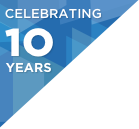Presentation: Architecting Google Docs
Location:
- Fleming, 3rd flr.
Duration
Day of week:
- Tuesday
Key Takeaways
- Hear how Google Sheets came to be part of Google Apps.
- Gain deeper understanding of how CAP affects distributed systems like Google Apps.
- Understand how the application of communicative and noncommunicative operations can affect distributed systems in interesting ways.
Abstract
Micah Lemonik of Google NYC will discuss the challenges of building behaviorally complex products and realtime state management systems at a global scale.
Learn about the architectural history of Google Docs and how we build the worlds largest real time collaboration platform and how we make that platform available to developers.
Some of the things covered:
- Making realtime collaboration on any document type work
- Making a word processor and spreadsheet in a browser
- Building scalable distributed systems that need to support a large amount of object state and non-idempotent / non-commutative messaging
- Architecting Google Drive's realtime SDK
Interview
Similar Talks
Tracks
Covering innovative topics
Monday, 7 March
-
Back to Java
What to expect in Java 9 and Spring 5
-
Stream Processing @ Scale
Big data, fast-moving data. Practical implementation lessons on Real-time Data
-
DevOps & CI/CD
Lessons/stories on optimizing the deployment pipeline
-
Head-to-Tail Functional Languages
Free-range Monads, Tackling immutability, tales from production, and more...
-
Architecting for Failure
Your system will fail. Take control before it takes you with it
-
21st Century Culture from Geeks on the Ground
New ways to organise technology companies and workplace culture
Tuesday, 8 March
-
Architectures You've Always Wondered about
In-depth technical case studies from giants like: Microsoft, Netflix, Google, Twitter, and more...
-
Close to the Metal
Get efficiency back into your code, concepts like: cache efficient algorithm and lock free data structures
-
Containers (in production)
Real-world lessons on scalability and reliability in production container deployments
-
Modern CS in the real world
Real-world Industry adoption of modern CS ideas
-
Security, Incident Response & Fraud Detection
Master-level classes on building security into your system and responding to incidents when things go wrong.
-
Optimizing You
Keeping life in balance is always a challenge. Learning lifehacks
Wednesday, 9 March
-
Disrupting Finance
Technology advances in finance (blockchain, P2P, Machine Learning, API's)
-
Modern Native Languages
Modern native languages: Safe efficiency with Go, Rust, Swift
-
Full Stack Javascript
Level up Javascript with topics like Angular, React/ReactNative, Node, Mongo/Couch/Other, Falcor, GraphQL, etc
-
Data Science & Machine Learning Methods
A developer's data science and machine learning toolkit
-
Microservices for Mega-Architectures
Practical lessons on Microservices success.
-
Modern Agile Development
Revisiting Agile today and tackling challenges we are seeing in the wild




